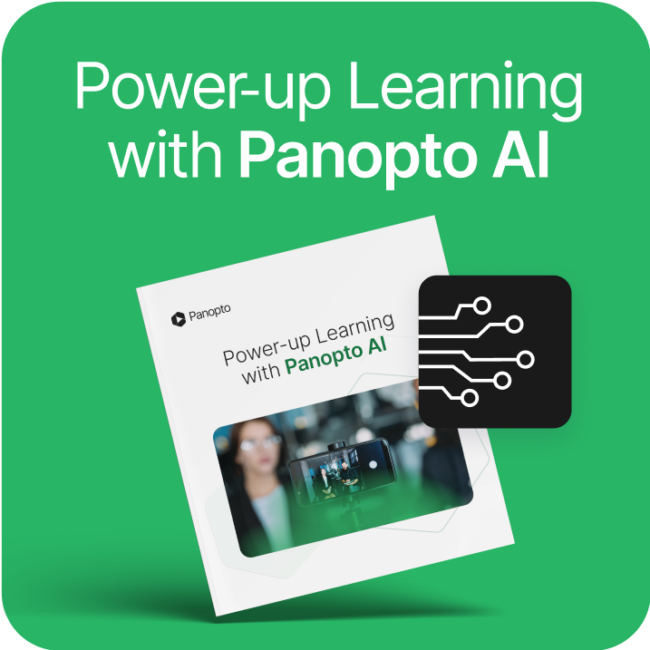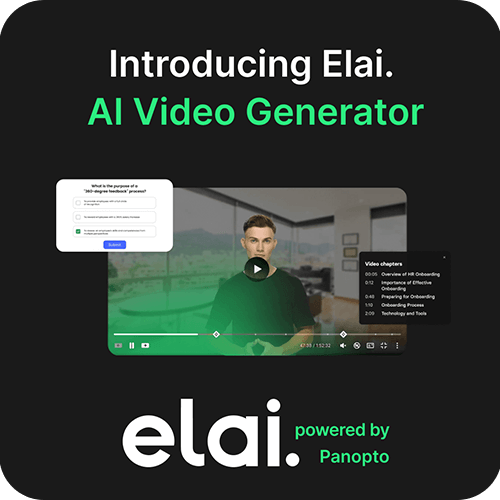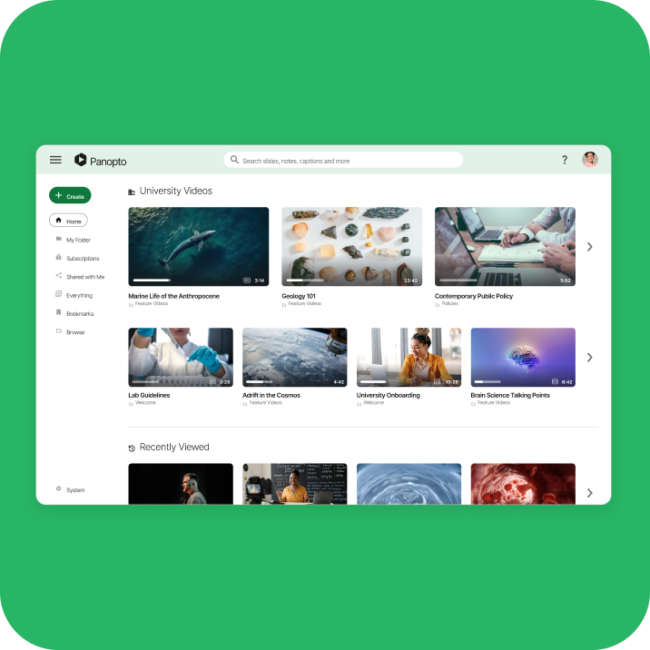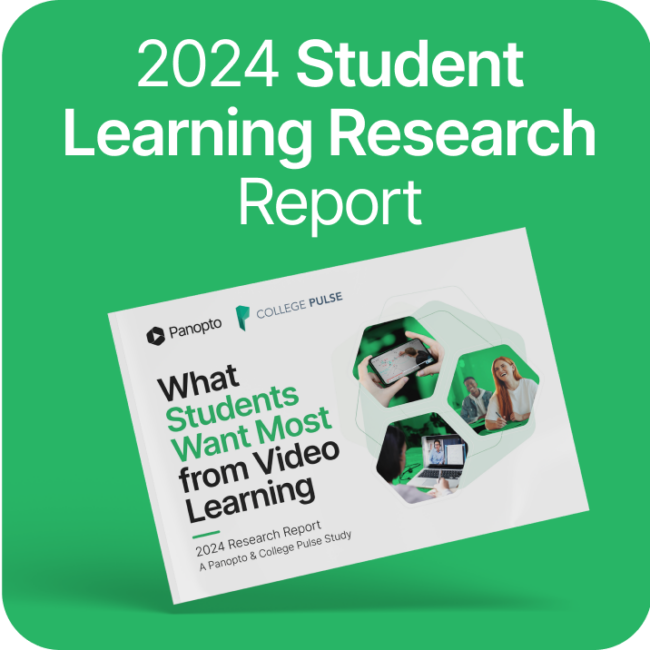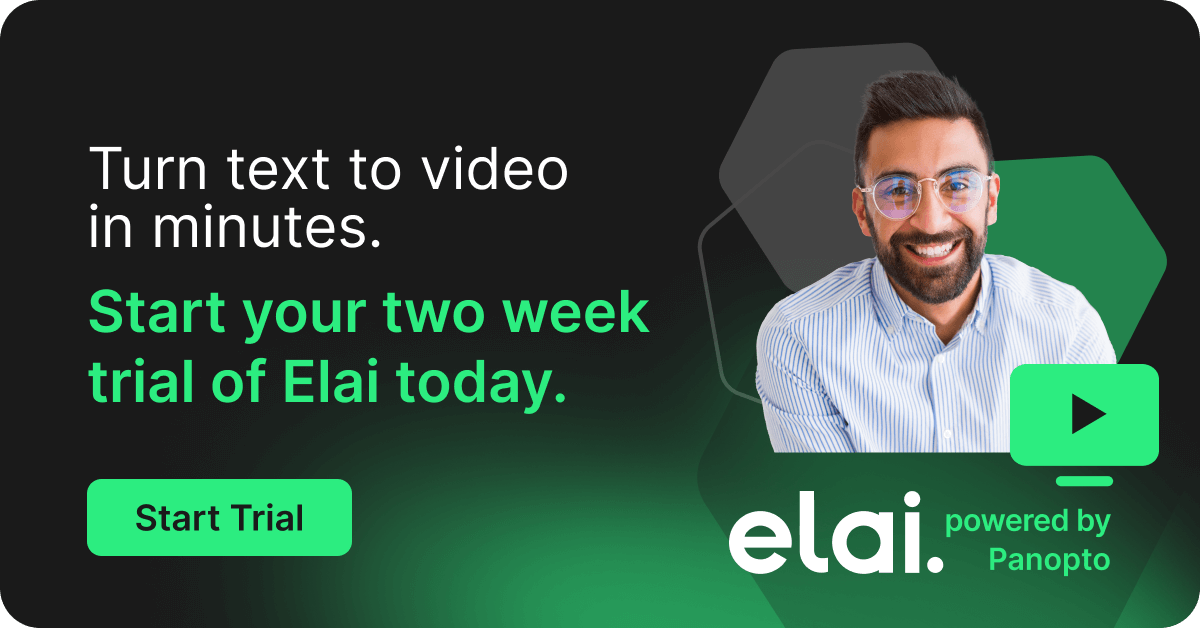- Healthcare
Celebrate Ada Lovelace — And Women Everywhere in Science, Technology, Engineering, and Math
The first computer program was a work of inspired intuition. We mean that literally — it was written a full century prior to the advent of even the earliest electronic computers, but neatly anticipated many of the objectives and capabilities of those machines.
The first computer program was a work of supreme expertise. The computing tool it was written for — Charles Babbage’s famous “Analytical Engine” — was nothing more than plans on paper. No physical model of it had yet been built, and yet that first program (a whole series of them, in fact) created working code for it.
The first computer program was the work of a woman. She was Ada Lovelace; a Victorian mathematician to whom everyone who’s ever written a line of code, designed a new application or program, or even just opened up a laptop owes a great debt of gratitude.
Celebrate Ada Lovelace Day!
Today, October 14, the international community celebrates Ada Lovelace Day not only in recognition of the achievements of its namesake, but in honor of all the accomplishments of women in science, technology, engineering and maths (STEM).
In Ada’s time, it was all too common for the contribution of women to go unrecognized, especially in the STEM fields. Even Ada’s groundbreaking work was forgotten for half a century until rediscovered during World War 2. But while much has changed in the years since, there is still much to do in the STEM fields to appropriately recognize the contributions of women.
Which is exactly why today we celebrate Ada Lovelace Day.
Ada Lovelace is a striking example that programming languages have no predetermined voice — they can be spoken by anyone, male or female, and in any part of the world, regardless of local politics.
Moreover, Ada Lovelace Day reminds us that expertise has no gender, that it is a diversity of voices that produces the greatest results, and that it’s those with different perspectives that often produce the most innovative solutions.
At Panopto, we design tools for anyone and everyone to learn, teach, and present information. And in the spirit of the day, we’d like to share with you just a few science, technology, engineering, and mathematics presentations, shared by just a handful of the modern day colleagues Ada Lovelace and her groundbreaking work now enjoys.
Transplant Overview – Henry Ford Medical Group
Dr. Mariella Goggins shares her expertise on kidney transplantation in this recorded professional learning seminar. Dr. Goggins speaks to the benefits of transplantation, discusses the state of the donor pool, and instructs her colleagues in the healthcare industry on the details of how transplants are done and the variables to consider when proposing or performing the practice. For medical professionals, it’s an essential presentation on an important subject.

Augmented Reality Mobile Games for Language Learning and Revitalization
Joining the University of Arizona’s Linguistics Department for this fascinating recorded lecture on how mobile video games that include elements of augmented reality can be tapped to help users learn language through the power of visual storytelling and place-based learning.
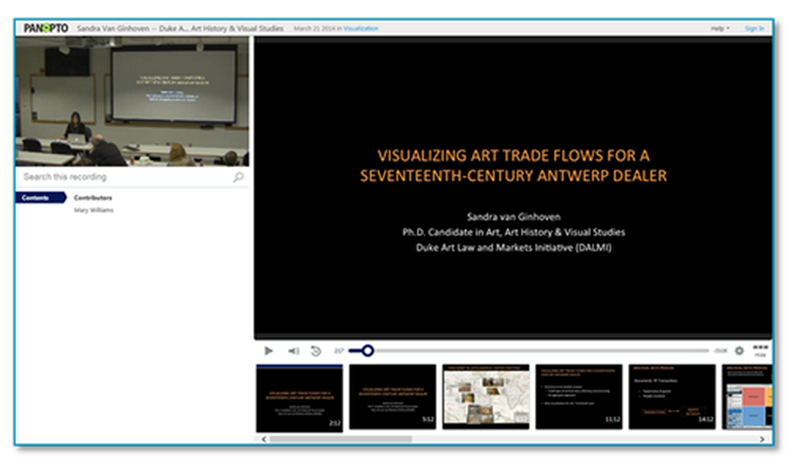
Visualizing Art Trade Flows For a 17th Century Antwerp Dealer
Sit in with the Duke University Art Law and Markets Initiative and learn first hand about the transatlantic art trade in 1600s, as part of this recorded lecture. In this incredibly rich and detailed presentation, you’ll see how the market for art at this time adapted and evolved with the introduction of works from Central and South America, and what that market evolution meant for trade, exports, and shipping.

Crafting Knowledge with Digital Visual Media in Archaeology
Join Sara Perry of the University of York for her guest recorded lecture on the practice of visualization within the field of archaeology. Today’s archaeological visualizers occupy a unique position within the discipline, challenged to combine true graphic design artistry with accurate historical representations.
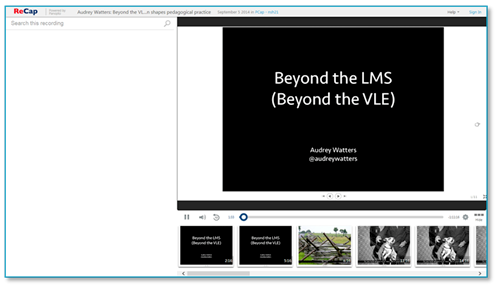
Beyond the Learning Management System (Beyond the Virtual Learning Environment)
Hack Education’s Audrey Watters comes to Newcastle University to discuss the state of education and technology in this webcast conference address. Watters contends ed-tech must not be about building digital walls around students and content and courses, but rather, building connections and networks. She calls on learning technologists to “move beyond the LMS, back to and forward to an independent Web and help our students take full advantage of it.”
So celebrate Ada Lovelace! And more importantly, celebrate science and technology with the young women in your life. With every line of code, every kitchen chemistry experiment, and every evening gazing at the stars, you might just help spark the same curiosity that inspired the woman who inspires so many more today.
